Student Testimony
Former Students Reflect on their Experience with Ancient Texts
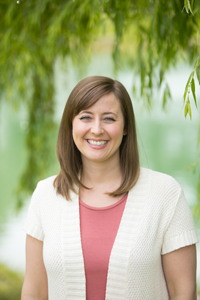 My training at ACU, especially in its focus on ancient texts, equipped me with the skills I needed not only for my doctoral program but also for my continued academic publishing. The faculty modeled a deep appreciation for ancient texts, spanning multiple languages, geographical regions, and centuries. I had the opportunity to study four different languages—three ancient, one modern—which, when coupled with the program’s strong emphasis on exegesis, prepared me for my future in the academy and in teaching. I’m beyond thankful for the training I received and would do it again in a heartbeat.
My training at ACU, especially in its focus on ancient texts, equipped me with the skills I needed not only for my doctoral program but also for my continued academic publishing. The faculty modeled a deep appreciation for ancient texts, spanning multiple languages, geographical regions, and centuries. I had the opportunity to study four different languages—three ancient, one modern—which, when coupled with the program’s strong emphasis on exegesis, prepared me for my future in the academy and in teaching. I’m beyond thankful for the training I received and would do it again in a heartbeat.
Heather M. Gorman, Ph.D., Associate Professor of New Testament, Johnson University, Knoxville, Tennessee
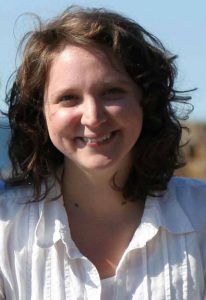 Through translating early Christian texts, written by theologians like Ephrem the Syrian and Jacob of Sarug, I learned to look at Scripture in imaginative ways that I hadn’t before. In reading their sermons, hymns, and poetry, I learned again to marvel at God and God’s ways in Scripture, in nature, and in my own life. Close translation and study of these ancient Christian texts have influenced the way I interpret Scripture and teach theology every day.
Through translating early Christian texts, written by theologians like Ephrem the Syrian and Jacob of Sarug, I learned to look at Scripture in imaginative ways that I hadn’t before. In reading their sermons, hymns, and poetry, I learned again to marvel at God and God’s ways in Scripture, in nature, and in my own life. Close translation and study of these ancient Christian texts have influenced the way I interpret Scripture and teach theology every day.
Shelby Green, Ballinger, TX
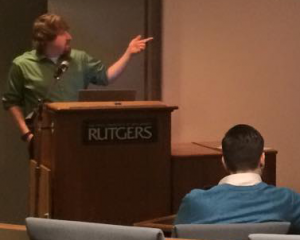 The level of instruction that I received at ACU in ancient languages, manuscript study, and text-critical theory was phenomenal. What truly set this experience apart was that I was also closely mentored by world-class scholars, invited and included in their research, and given opportunities to launch my own scholarly career. As a computer science Ph.D. student, I’m now combining cutting edge artificial intelligence theory and my knowledge of ancient languages and manuscripts to digitize the vast corpora of ancient texts.
The level of instruction that I received at ACU in ancient languages, manuscript study, and text-critical theory was phenomenal. What truly set this experience apart was that I was also closely mentored by world-class scholars, invited and included in their research, and given opportunities to launch my own scholarly career. As a computer science Ph.D. student, I’m now combining cutting edge artificial intelligence theory and my knowledge of ancient languages and manuscripts to digitize the vast corpora of ancient texts.
James R. Prather, Instructor of Computer Science, ACU; Ph.D candidate, Computer science, Nova Southeastern University
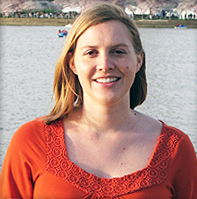 I always had an interest in the Bible and its languages, but it was during my time at ACU that my interest and skills in ancient texts and languages was developed. In addition to Greek and Hebrew, I was able to increase my exposure to the study of ancient texts with classes in textual criticism, Coptic, and Syriac. As a research assistant, I had the rare opportunity to collate Greek lectionary texts, a job that provided me with skills in paleography, textual criticism, and navigating manuscripts. The incredible exposure I had to ancient texts and languages and the faculty—who not only taught, but who nurtured my interests and provided opportunities for further learning—were instrumental in both sparking my desire for further study and providing the foundation that made PhD work possible for me.
I always had an interest in the Bible and its languages, but it was during my time at ACU that my interest and skills in ancient texts and languages was developed. In addition to Greek and Hebrew, I was able to increase my exposure to the study of ancient texts with classes in textual criticism, Coptic, and Syriac. As a research assistant, I had the rare opportunity to collate Greek lectionary texts, a job that provided me with skills in paleography, textual criticism, and navigating manuscripts. The incredible exposure I had to ancient texts and languages and the faculty—who not only taught, but who nurtured my interests and provided opportunities for further learning—were instrumental in both sparking my desire for further study and providing the foundation that made PhD work possible for me.
Dr. Tera Harmon, Los Alamos, NM
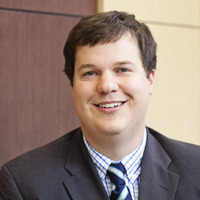 I was introduced to a new world through the study of ancient languages and texts. This new world was exciting, but also overwhelming; luckily, the professors introduced me to the tools, and taught me the skills I needed to navigate these foreign landscapes. This training went far beyond mere instruction in grammar and vocabulary. I learned not only how to parse verbs and understand syntax, but also how to read a historical text as a window into a world to which I previously had no access. I learned to read texts, but even more so to engage them and to ask critical questions. The training I received prepared me both for a doctoral program and an academic career studying these ancient texts, the people who wrote them, and the communities who read and preserved them.
I was introduced to a new world through the study of ancient languages and texts. This new world was exciting, but also overwhelming; luckily, the professors introduced me to the tools, and taught me the skills I needed to navigate these foreign landscapes. This training went far beyond mere instruction in grammar and vocabulary. I learned not only how to parse verbs and understand syntax, but also how to read a historical text as a window into a world to which I previously had no access. I learned to read texts, but even more so to engage them and to ask critical questions. The training I received prepared me both for a doctoral program and an academic career studying these ancient texts, the people who wrote them, and the communities who read and preserved them.
James E. Walters, Associate Professor of Religion, Rochester College
Something that sets ACU apart is a rigorous engagement with the key resources of the Christian tradition, particularly patristic and medieval theology and spirituality. I was assigned a wide variety and large number of texts in Greek, Latin, and Syriac theology, which was crucial for developing my theological (and pastoral) sensibilities. This helped me to do close work on Maximus the Confessor, a difficult Byzantine theologian I dealt with in my MA thesis. Many PhD programs in theology expect just this sort of work in primary texts and original languages.
Matt Hale, PhD candidate, Systematic Theology, Catholic University of America
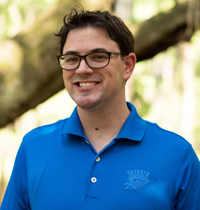 The first class I took was Textual Criticism with Jeff Childers where I wrote a paper over 1 Cor 14:34-35. It was immensely exciting to read these verses in the oldest papyrus of Paul’s letters (P46), and it was refreshing to see that other faithful Christians, who copied these letters, struggled with this passage as well. Theological reflection exists even in the manuscripts themselves, if one knows where to look. One could make similar statements about how reading cuneiform texts from Ugaritic can both open up the Hebrew language and make the mysterious world of the Bible a little more familiar. Ancient textual artifacts have stories. Discovering them by studying texts can be as enthralling as digging at an archaeological site, and just as rewarding.
The first class I took was Textual Criticism with Jeff Childers where I wrote a paper over 1 Cor 14:34-35. It was immensely exciting to read these verses in the oldest papyrus of Paul’s letters (P46), and it was refreshing to see that other faithful Christians, who copied these letters, struggled with this passage as well. Theological reflection exists even in the manuscripts themselves, if one knows where to look. One could make similar statements about how reading cuneiform texts from Ugaritic can both open up the Hebrew language and make the mysterious world of the Bible a little more familiar. Ancient textual artifacts have stories. Discovering them by studying texts can be as enthralling as digging at an archaeological site, and just as rewarding.
David Skelton, Ph.D. Candidate and Fulbright Scholar, Florida State University
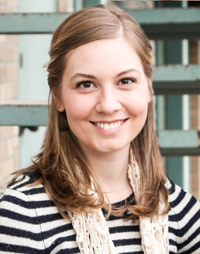 Students and even seasoned scholars are apt to reach for primary sources available in edited form. While this may seem natural—consulting unedited manuscripts requires a skill set that takes much time and effort to develop—it has the unfortunate side effect of skewing scholarly discussion in favor of certain types of texts. Existing editions reflect the judgment of previous generations concerning which works are “most important.” Many unedited works exist, representing a much broader witness to early Christianity: little-known authors, authors formerly deemed unorthodox, authors who lived outside of the Roman-Byzantine Empire, and texts written or preserved in languages other than Latin or Greek. The manuscript and editing skills fostered at ACU have allowed me to utilize this wider range of sources and thus contribute more substantively to the scholarly conversation.
Students and even seasoned scholars are apt to reach for primary sources available in edited form. While this may seem natural—consulting unedited manuscripts requires a skill set that takes much time and effort to develop—it has the unfortunate side effect of skewing scholarly discussion in favor of certain types of texts. Existing editions reflect the judgment of previous generations concerning which works are “most important.” Many unedited works exist, representing a much broader witness to early Christianity: little-known authors, authors formerly deemed unorthodox, authors who lived outside of the Roman-Byzantine Empire, and texts written or preserved in languages other than Latin or Greek. The manuscript and editing skills fostered at ACU have allowed me to utilize this wider range of sources and thus contribute more substantively to the scholarly conversation.
Laura Locke Estes, PhD candidate, Saint Louis University
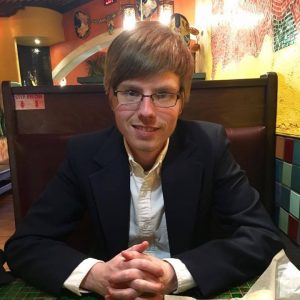 At ACU I had wonderful opportunities for studying ancient texts such as the Bible, patristic thinkers in Greek, and medieval theologians in Latin. The best part was the way that ancient writers came alive when we studied them in their own context and language. I understood how writers like Gregory Nazianzen or Thomas Aquinas used terms arguments related to the issues of their time. However, as a theologian, the value was not only for me to understand early Christian writers in their own context but also to unearth the treasures of wisdom that could be found, treasures that may have a message for contemporary Christians. I look forward to the many ways that CSART will continue this wonderful legacy of connecting students with ancient wisdom.
At ACU I had wonderful opportunities for studying ancient texts such as the Bible, patristic thinkers in Greek, and medieval theologians in Latin. The best part was the way that ancient writers came alive when we studied them in their own context and language. I understood how writers like Gregory Nazianzen or Thomas Aquinas used terms arguments related to the issues of their time. However, as a theologian, the value was not only for me to understand early Christian writers in their own context but also to unearth the treasures of wisdom that could be found, treasures that may have a message for contemporary Christians. I look forward to the many ways that CSART will continue this wonderful legacy of connecting students with ancient wisdom.
John R. Kern, PhD candidate, systematic theology, Boston College
The understanding and facility of ancient languages are what set scholars of religion apart from other disciplines and are absolutely foundational for all further education in the field of study. ACU has a rare assemblage of experts in ancient languages. I took advantage of their expertise and it allowed me to pursue manuscript work with the International Greek New Testament project, textual criticism of the Hebrew Bible and New Testament, and produce critical translations of Greek and Syriac texts. Ancient languages are crucial for my scholarship and teaching and the ACU’s highly regarded faculty were vital for my development.
Jacob A. Lollar, Ph.D. Candidate, Religions of Western Antiquity, Florida State University
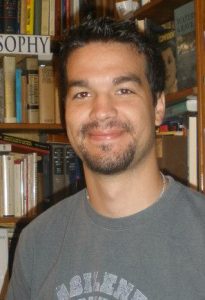 The Church in the western world tends to function as a theological orphan. We hold to many beliefs whose basis is in the thought worlds of antiquity, but we often divorce them from their theological parentage, leading to a host of bizarre entanglements and inconsistencies. ACU champions the conviction that ancient texts still hold a vital place in our present-day understanding and practice. Toward this end, as an undergraduate and graduate student I had the opportunity to become acquainted with ancient texts and their worlds through a number of methods: historical, text-critical, linguistic, and theological. Most importantly the faculty brought these skills together under the aegis of wisdom; imparting the ability to discern good judgment based on the perspective of the past and the present. My education with the faculty at the GST and the culture of wisdom that they sustain has proved vital in my work as a minister and an academic.
The Church in the western world tends to function as a theological orphan. We hold to many beliefs whose basis is in the thought worlds of antiquity, but we often divorce them from their theological parentage, leading to a host of bizarre entanglements and inconsistencies. ACU champions the conviction that ancient texts still hold a vital place in our present-day understanding and practice. Toward this end, as an undergraduate and graduate student I had the opportunity to become acquainted with ancient texts and their worlds through a number of methods: historical, text-critical, linguistic, and theological. Most importantly the faculty brought these skills together under the aegis of wisdom; imparting the ability to discern good judgment based on the perspective of the past and the present. My education with the faculty at the GST and the culture of wisdom that they sustain has proved vital in my work as a minister and an academic.
Brandon Pierce, Preaching Minister, Junction, Texas
In the GST, I was blessed to work in an environment committed to the careful study of ancient texts. The GST consistently produces scholars and pastors who approach these texts with sensitivity and charity. As a doctoral student, I have found these skills to be invaluable in all of my work. But in particular, this facet of the culture of the GST was deeply formative for the dissertation I’m now writing. The GST gave me a broad and appreciative introduction to the patristic tradition, which prepared me to identify deep threads of continuity between the patristic writers and Anselm of Canterbury. This background has helped me develop a reading of Anselm that is, I think, a genuine contribution. I certainly have the GST to thank, and in particular for its focus on ancient texts.
David Mahfood, PhD candidate, SMU
